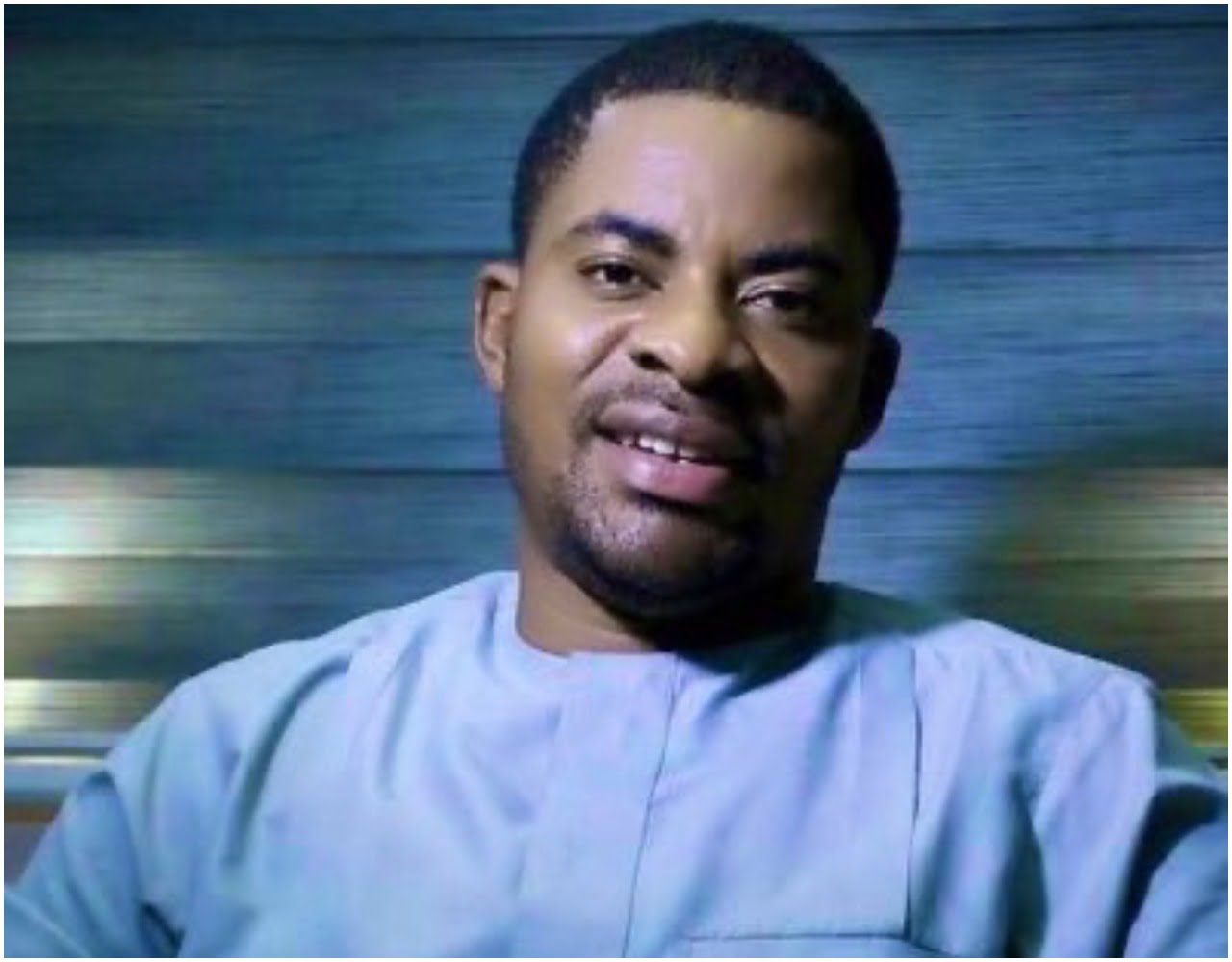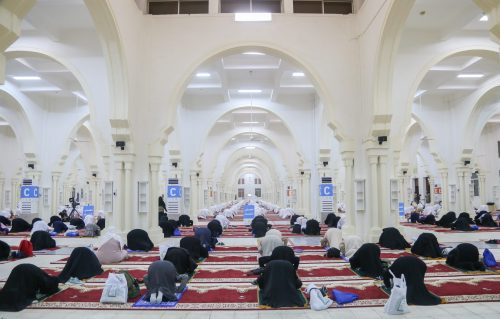 Reality is full of contradictions. By the time Oronto Douglas passed on to the great beyond, we were on different sides of the Nigerian political divide. He on the side of Dr. Goodluck Jonathan and the Peoples Democratic Party (PDP) and I on the side of General Muhammadu Buhari (rtd.) and the All Progressives Congress (APC). In spite of this difference in the best way ahead for our dear country, Nigeria, we remained the best of friends, brothers and more. Oronto was broad-minded. Bitterness was not in his dictionary.
Reality is full of contradictions. By the time Oronto Douglas passed on to the great beyond, we were on different sides of the Nigerian political divide. He on the side of Dr. Goodluck Jonathan and the Peoples Democratic Party (PDP) and I on the side of General Muhammadu Buhari (rtd.) and the All Progressives Congress (APC). In spite of this difference in the best way ahead for our dear country, Nigeria, we remained the best of friends, brothers and more. Oronto was broad-minded. Bitterness was not in his dictionary.
Sometime in 1989, Oronto and I met at the University of Port Harcourt. He had come from his school, the Rivers State University of Science and Technology (RSUST), to meet with Dr. Kimse Okoko of the Department of Political and Administrative Studies. On account of our activism in our respective campuses, both of us knew our names, but not faces. So when this chance meeting took place, we instantly became friends. Oronto was a progressive student leader. At RSUST, he was Editor-in-Chief of the University Press Club. He was also chairman of the Editorial Board and Editor-in-Chief of The Rivers Man (an organ of the National Union of Rivers State Students). At that time, his home state of Bayelsa had not been created out of Rivers.
There has been an attempt – consciously or unconsciously – to paint a picture of Oronto based solely on his role as Strategy Adviser to President Jonathan. This is a great disservice to his memory. The name Oronto Douglas was already a huge resource when he joined government. To my mind, Oronto’s greatest contribution in life lies in his role in civil society building. As an environmental human rights advocate, his record may be equalled but never surpassed. At a time, he was the most outspoken, most consistent and most fluent voice on resource control, self-determination and environmental security in Nigeria. At community-organised programmes, think-tanks and universities all over the world, he spoke on justice for the Niger Delta. He met with world leaders, including President Bill Clinton, and gave parliamentary briefings in Ireland, Belgium, Finland, Sweden, etc., on issues of environmental rights and livelihood. Community people were at the heart of Oronto’s lifework. He helped found civic groups like the Environmental Rights Action (ERA), Chikoko Movement, Ijaw Youths Council (IYC), Community Defence Law Foundation (CDLF), and others. He mentored activists and inspired activist groups such as Niger Delta Women for Justice (NDWJ), Odua for Nature Conservation (ONAC), Ijaw Council for Human Rights (ICHR), and others. Oronto, it was, along with our mutual friend and brother, Dr. Ike Okonta, who pulled me out of mainstream journalism to work in the non-profit sector as Campaigns Coordinator and Head of the ERA office in Lagos. Oronto worked day and night. I recall that he single-handedly wrote the leaflet: “100 Reasons Why the Ijaw Want to Control their Resources” for the ICHR in the thick of the Kaiama Declaration. It was my duty to edit and prepare it for publication.
On 30 October 2000, I sent an e-mail to Oronto from Accra, Ghana. I was attending a conference as a representative of ERA. In the mail, I suggested to him the idea of working on three books. One, Mr. Niger Delta: Conversations with Oronto Douglas. This was patterned after Regis Debray’s Conversations with Allende and Jeffrey Elliot’s Conversations with Maya Angelou. Two, a collection of Oronto’s leading articles, speeches and papers. I did not have a working title for that then, but it was something similar to Nelson Mandela’s Long Walk to Freedom. Three, a political biography.
In my October 2000 mail, I wrote: “I’m working on these not to promote your person, but the social position you represent. Your prime position as a symbol of the struggles of the Delta. If I don’t get to do it, one person from the West will certainly dream it up. We will have to publish first and let any publisher interested in the West take our permission to reprint.”
Fifteen years after, it is sad to report that of the three works, only one is ready for publication. That is the collection of papers and speeches. It is titled, What the White-Tailed Monkey Told Me: Reclaiming the Niger Delta Dream. Now that Oronto is no more with us, seeing this project to its logical end has become a task that must be done.
Many comrades contributed to the making of the Oronto brand. I recall that Dr. Ike Okonta had suggested to him the idea of writing an autobiography. Ike actually drafted the outline for the work. Oronto started it but never finished.
Following an invitation from then Bayelsa State Governor, Chief Diepreye Alamieyeseigha, Oronto joined government as Commissioner for Information and Strategy in Bayelsa State in 2004. It was a difficult decision. There were those in our movement who believed he had ‘sold out’. Part of the argument was that even if it made sense to be in government, he should not be in the Information Ministry. He would make a greater impact as Environment Commissioner, they argued. I remember Oronto consulted widely, including people like Professor Julius Ihonvbere, who was then a Special Adviser to President Olusegun Obasanjo. Ihonvbere, who was my teacher at University, encouraged Oronto to accept Alamieyeseigha’s offer of appointment – whatever the portfolio. My position then, and now, is that every platform is a platform for struggle. We cannot continue to claim that we are bright people, yet, allow semi-literates to remain in government and power. Progress lies in engagement and participation. Change is not restricted to created spaces. Invited spaces can also lead to change. Oronto fought battles in government. It was while serving as Alamieyeseigha’s Commissioner that he was nominated to represent Bayelsa State at the 2005 National Political Reform Conference (NPRC). At the NPRC, he was a member of the Committee on Environment and Natural Resources. Being the fighter that he was, Oronto disagreed with the committee’s main recommendations. The point of disagreement was the ideal legal and institutional framework for the management of Nigeria’s natural resources. He went on to present a minority report.
In his report, Oronto said, “While every Nigerian would be happy to live within a legal framework where the right to a clean and healthy environment is guaranteed and reinforced by the provision of justiceability, as correctly urged by the report, it is awkward and something of a double-speak for the main committee report to be silent on the need to remove laws that are iniquitous in their actions from the overall body of laws in the land, the constitution of Nigeria.”
Oronto went on to make a case for the abrogation of the Land Use Act, the Petroleum Act, and all the other legislations that deny the people the right to control their natural resources. In addition, he called for a new Nigerian constitution “freely made by the Nigerian people and enacted via the process of a referendum.”
Oronto returned to government in 2007. This time at the Presidency as an aide to the Vice President, who later became President.
It is sad that Oronto left us too soon. But we take solace in the fact that in his short life span, he left a deep and lasting influence on most of us that came in contact with him.
Whether as a student leader, an environmental human rights campaigner, non-state actor or government official, his contributions were outstanding.
After interacting with Oronto for close to three decades, I affirm that he was a good man. He was a bold and innovative thinker. He was a friend, brother and more.
The real Oronto was a prophet of resistance.
Rest, OND, Rest!
Doifie BUOKORIBO is a media and political strategist, development consultant, and social and political activist. He has worked as a public affairs journalist, environmental human rights campaigner, and public servant. He can be reached at: Email: doifieo@yahoo.com; Twitter: @doifiebuokoribo



